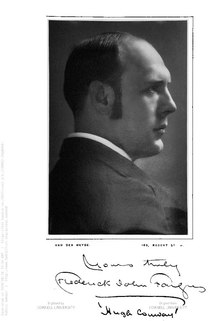A Quote by Henry B. Eyring
Whenever we meet anyone, our first, almost unconscious reaction may be to look for imperfections.
Related Quotes
We live in a world where finding fault in others seems to be the favorite blood sport. It has long been the basis of political campaign strategy. It is the theme of much television programming across the world. It sells newspapers. Whenever we meet anyone, our first, almost unconscious reaction may be to look for imperfections.
The continual intrusion into our minds of the hammering noises of arguments and propaganda can lead to two kinds of reactions. It may lead to apathy and indifference, the I-don't-care reaction, or to a more intensified desire to study and to understand. Unfortunately, the first reaction is the more popular one.
The reaction to any word may be, in an individual, either a mob-reaction or an individual reaction. It is up to the individual to ask himself: Is my reaction individual, or am I merely reacting from my mob-self? When it comes to the so-called obscene words, I should say that hardly one person in a million escapes mob-reaction.
When you meet opposition to your faith, your first reaction may be anger toward your antagonist. This may divert your attention from the deeper, spiritual dimensions of your conflict. Your adversary may be hopelessly in bondage to sin. Rather than retaliating, you should immediately and earnestly intercede for that person. Your opponent's hostility is your invitation to become involved in God's redemptive work to free him or her from spiritual bondage. Be alert to the spiritual warfare around you.
Hair is the most delicate and lasting of our materials, and survives us, like love. It is so light, so gentle; so escaping from the idea of death, that, with a lock of hair belonging to a child or friend, we may almost look up to heaven and compare notes with the angelic nature,--may almost say, "I have a piece of thee here not unworthy of thy being now.
You have to learn to trust - and listen to - your unconscious mind. If you pose the question to your unconscious "is this person a friend or a foe" - safe or a threat - your unconscious mind is hard-wired to assess that brilliantly for you. It's just that we're not very good at paying attention to what our unconscious minds are telling us.








































